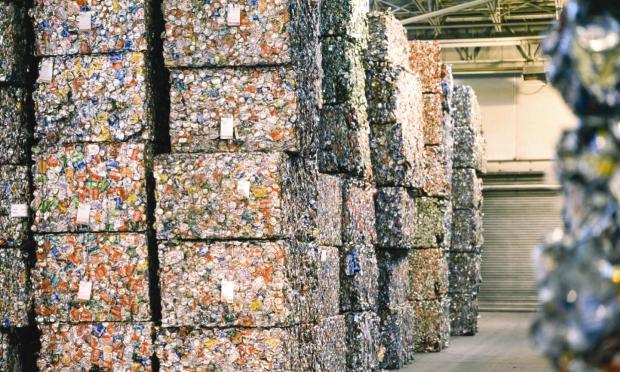
The Circular Economy Task Force is a government supported business-led group, including firms such as Boots, Unilever and Wrap, convened by independent think tank Green Alliance. It says that it is a forum for policy innovation which aims to disseminate information and recommendations on the best responses to sustainable resource security.
According to the task force, what's at stake is rebuilding a viable manufacturing economy for the future. ?It added that other countries are taking action to secure resources to support their industries. The task force said that the UK needs to act now or risks falling behind.
These are the conclusions of the first report from the Circular Economy Task Force, Resource resilient UK, which sets out what businesses and government can do right now to manage resource risks, protect UK businesses and benefit from expanding reuse, recycling and remanufacturing.
The report highlights major environmental risks that are creating significant commercial uncertainty for manufacturers and businesses in the UK, for example:
Copper: This is a staple of the electronics industry, mostly sourced from Chile. The capital cost of new mines has doubled over the past two years largely because of acute water scarcity: extraction costs are going up as ore grades go down (falling from around eight per cent to just 0.7 per cent over the past 150 years). This fosters price volatility and undermines investment in manufacturing infrastructure. Aluminium: If the carbon emissions in aluminium production were priced, the cost of primary aluminium would rise by 70%. In contrast, recycled aluminium would cost only seven per cent more and reused aluminium less than one per cent. Uncertainty over future carbon prices undermines the business case for better reuse and recovery. Oil: Globally, the marginal price of oil has risen 14% each year since 2001 which is driving up prices for manufacturers. Finding new oil reserves won't stop this trend because extraction is becoming more costly: horizontal fracking uses 4.2 times more steel per well than conventional production and offshore wells are now more than twice as deep as they were in the late 1990s. Remanufacturing and recycling resources uses much less energy than mining, helping offset rising prices.
'Resource security risks'
Author of the report, Dustin Benton, said: "Our analysis shows that companies in the UK want and need to avoid resource security risks.
"There's a lot that businesses can do on their own, but the government needs to help. The government's industrial strategy should quantify resource security risks for different business sectors. It also needs to actively broker co-operation across supply chains to get materials back, and push businesses to redesign their products to make them easier to recover."
In a statement the task force added: "Resources are currently lost because products aren't designed for recovery and business sectors aren't incentivised to share common approaches.
A clearer industrial strategy would de-risk collaboration, set agreed sector-wide goals for recovery and stimulate businesses to adopt new, resource efficient business models. "





